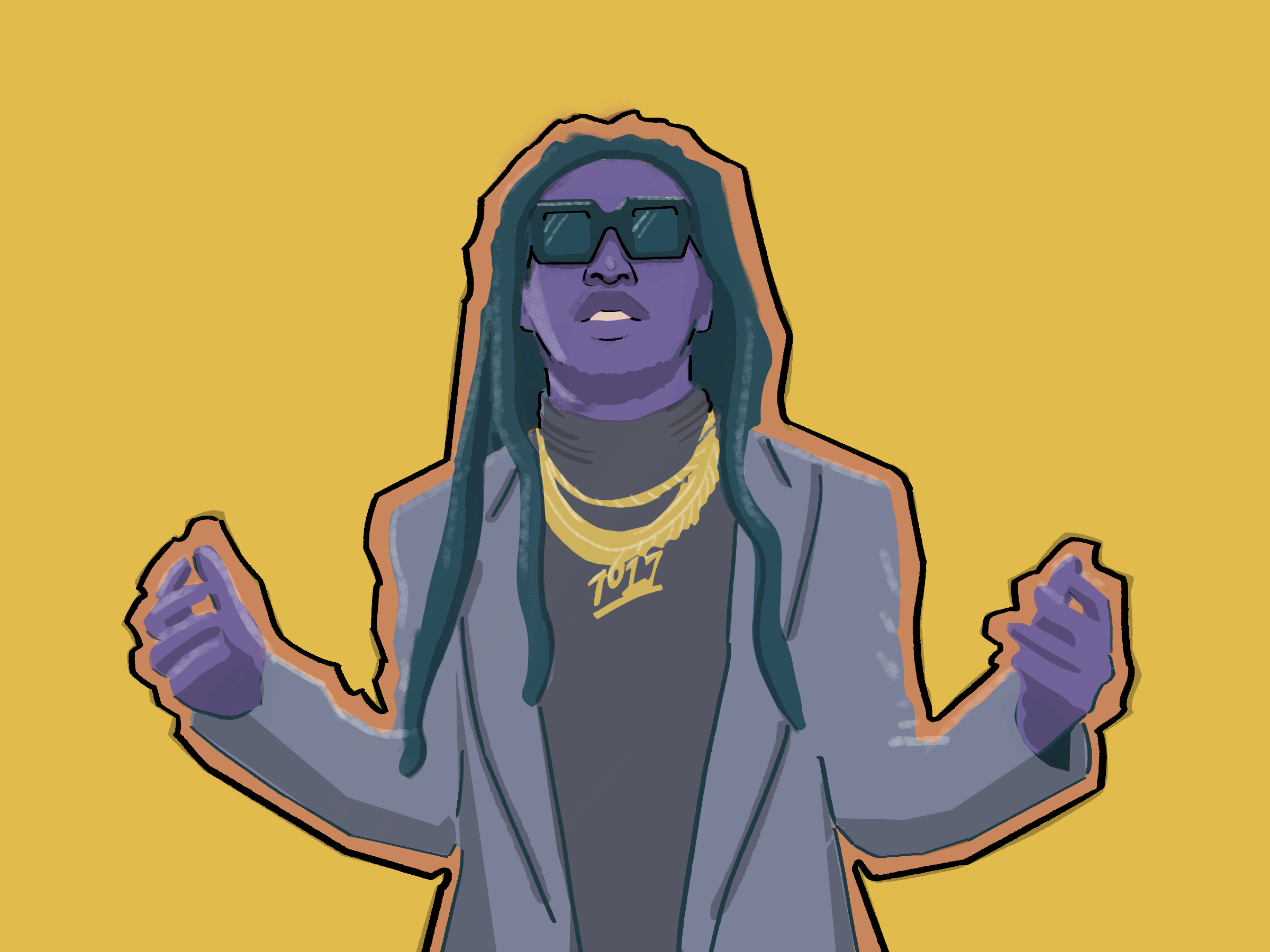Another rapper has been killed in the United States as a result of the gun violence epidemic
On Nov. 1, American rapper Takeoff from the hip-hop group Migos was shot and killed in Houston, Texas. The 28-year-old rapper was outside of 810 Billiards and Bowling Houston when an argument broke out that led to the shooting.
The news of Takeoff’s death spread rapidly and left many in disbelief because it seemed that he died over nothing. There were no drugs, weapons, or anything criminal found on him, which left many wondering why this happened.
It seems that every year, at least one rapper gets shot and killed and then their death eventually becomes another statistic.
Sadly, Takeoff was the latest victim in this ongoing crisis.
According to a summary of the statistics by CNN, in 2018, XXXTentacion was robbed and gunned down in Florida. In 2019, Nipsey Hussle was shot over 10 times while helping out his community in Los Angeles. In 2020, Pop Smoke was shot during a home invasion in California. King Von was also shot and killed in 2020 during a dispute in a parking lot outside of a hookah lounge. Lastly, in 2021, Young Dolph was fatally shot while buying cookies in Memphis.
However, not everyone feels pity for these rappers. There is crime committed in all communities but when it comes to this genre of music, it’s reported differently towards the public.
Ben Shapiro is a US political commentator known for his controversial opinions. In 2019, he interviewed a rapper named Zuby and discussed how hip-hop negatively impacts people. “From the outside, when I listen to hip-hop, I don’t hear a bunch of family-oriented messages. In fact, I hear a lot of messages that are degrading to women, I hear messages that push violence, that are disparaging to the police.”
It seems as though people who blame hip-hop for the violence in Black communities can’t separate fiction from fact.
Hip-hop and rapping is a form of storytelling and rappers are often talking about their own life experiences and problems, with some exaggeration to make it entertaining.
Shéyaa Bin Abraham-Joseph, also known as 21 Savage, is a famous rapper who’s respected in the culture. On his 21st birthday, he was shot six times but survived to tell the story. This year in August, he sent out a tweet that was faced with instant backlash. “Atlanta we have to do better, put the f****** guns down!!!!!” the tweet read.
21 Savage was called a hypocrite because his lyrics depict him shooting, killing and robbing people. He responded back and informed the public about how his music is a narration of his life. “I ain’t never promoted violence. I just rap about what I’ve been through, or what I’ve heard about, what I’ve saw. That ain’t me promoting violence,” the rapper said on Instagram.
While there are many who advocate against gun violence, the number of rappers who have been killed this year only seems to be growing.
In 2022, Trouble, Snootie Wild, Tdott Woo, Wavy Navy Pooh, Goonew, Lil Devin, Archie Eversole, JayDaYoungan, FBG Cash, Rollie Bands, Young Slo-Be, Earl Swavey, Money Gang Vontae, PnB Rock, Desto and now Takeoff all are dead due to gun violence.
Although these rappers were senselessly shot dead, it seems as though because of who they were, how they looked and the fact that they rapped, they were expected to die. In reality, there is a gun control problem in the United States which is constantly left unaddressed when someone passes away in the hip-hop community.
Graphic by James Fay @jamesfaydraws
